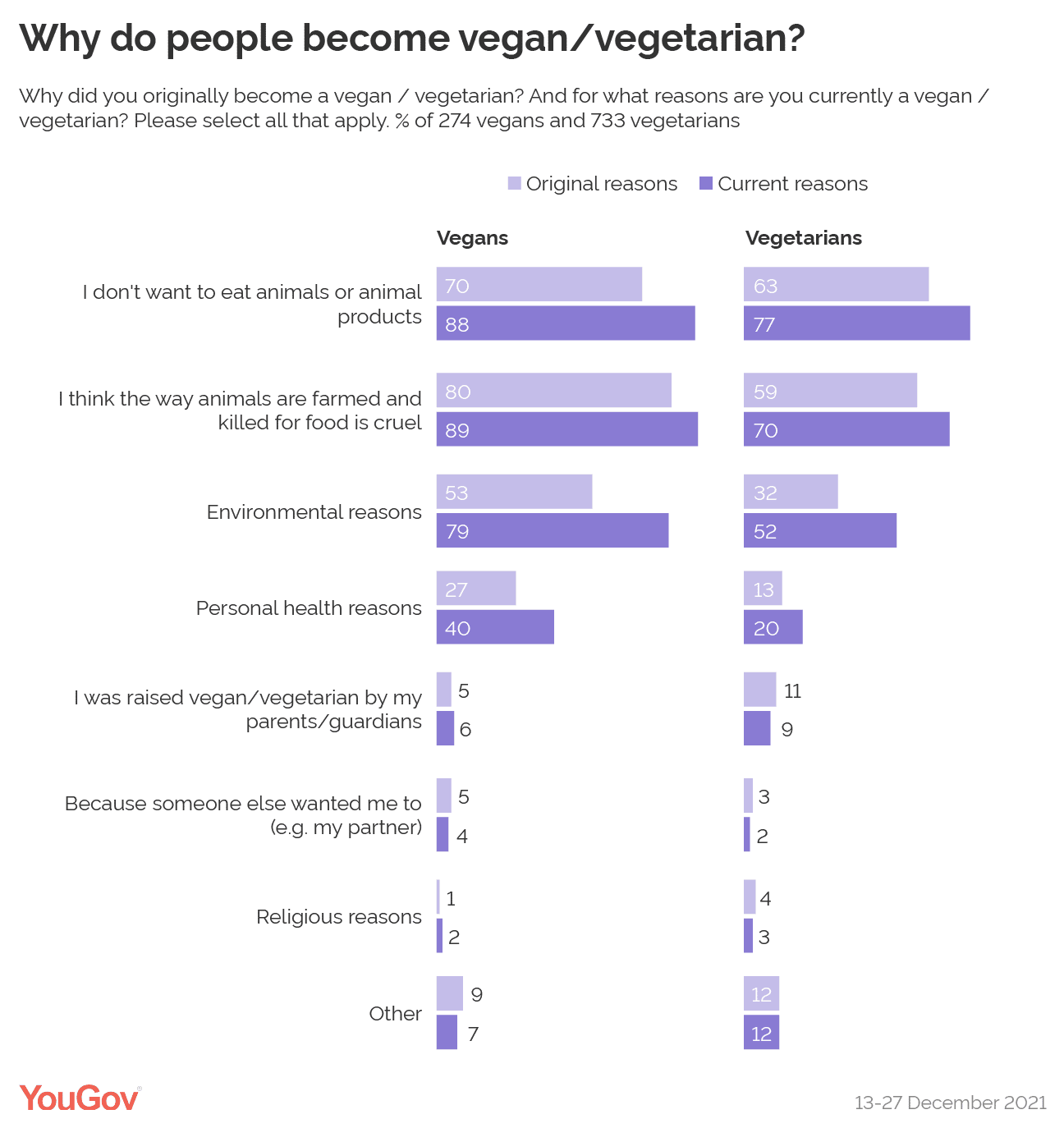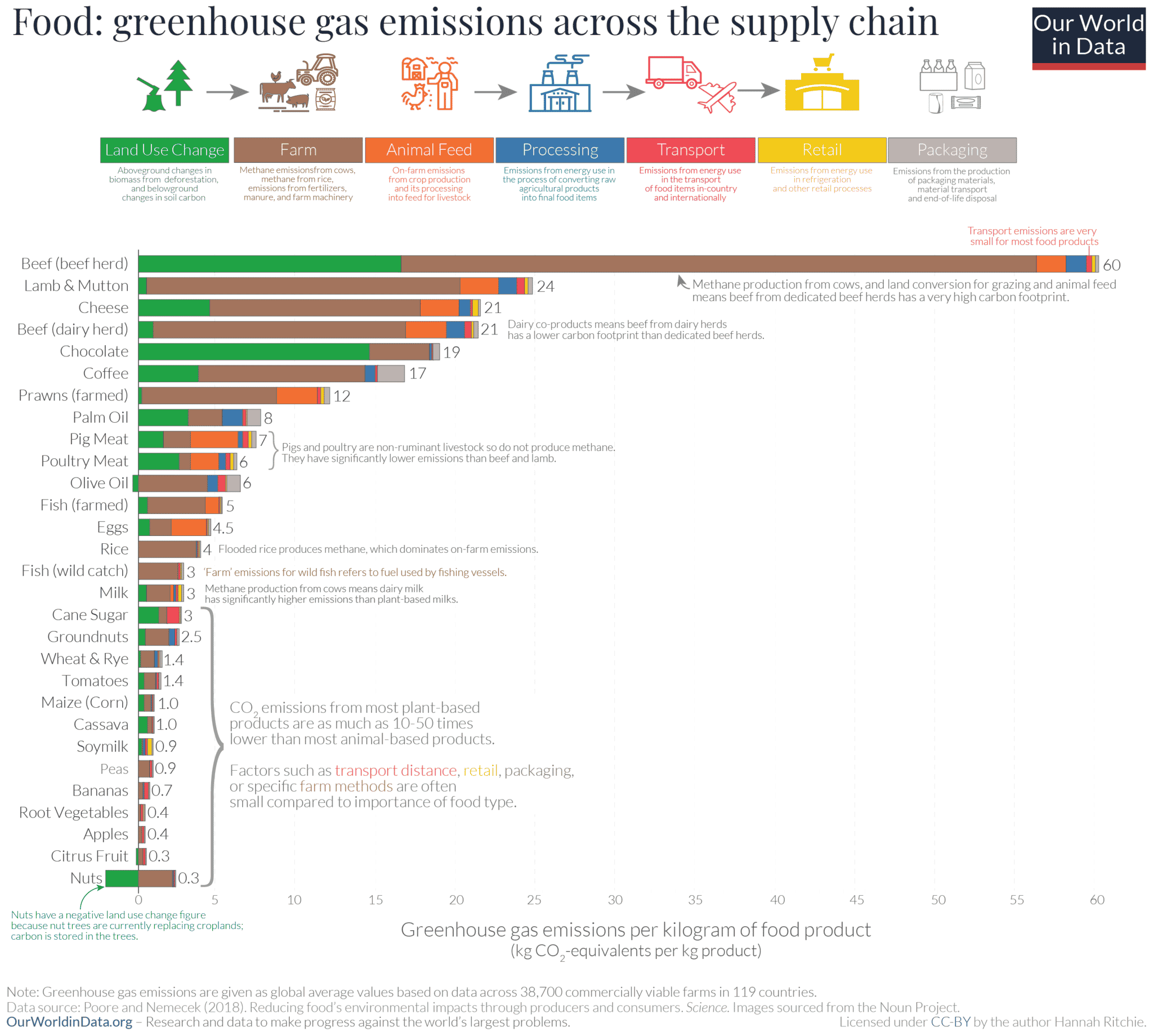As the Chief Executive of the Vegetarian Society, I am very aware that I occupy a privileged position. I lead the world’s oldest vegetarian organisation, formed way back in 1847 and with a rich history of activist members including none other than Mahatma Gandhi. But as we prepare to celebrate our 175th birthday, I am acutely aware that our mission is arguably more important than at any other time in our history.
Back in the 19th century, animal welfare and human health were the primary reasons for promoting a ‘vegetable diet’. Both remain key reasons today. However, one issue our Victorian pioneers could not have anticipated was the impending risk of climate breakdown. Already, we are feeling the effects with storms, wildfires and droughts. What was once theory is now increasingly becoming reality, in both the global north and south.
Back in the 1980s, I was a student at Lancaster University studying Environmental Science. At that time, climate change was starting to become an issue of significance, although one that was still an undefined risk. It was one that might be realised ‘in the future’ and, back then, with a high degree of uncertainty around impact.
Indeed, I still have a book from my student days titled ‘The Earth Report’, edited by Edward Goldsmith and Nicholas Hildyard. The only reference to climate change comes in an essay by James Lovelock, when discussing his Gaia theory, where he briefly touches on rising carbon emissions and the potential disruption to the Earth’s ability to regulate our climate.
However, throughout the 1980s, scientists and policy makers were in fact becoming increasingly concerned about the potential impacts associated with rising carbon emissions, leading to the development of the Intergovernmental Panel on Climate Change in 1988 and the United Nations Framework Convention on Climate Change in 1992.
 Why am I opening this short essay with a history lesson? Because it was in the 1980s, while at university, that I took a decision to stop eating meat and adopt a vegetarian diet, despite having eaten meat without a second thought up to that point. It was challenging, I slipped a couple of times, but I stuck with it. My reasons? Like so many other people: concern for the welfare of farmed animals. The idea of giving up meat to help prevent climate change was most definitely not a thing back then.
Why am I opening this short essay with a history lesson? Because it was in the 1980s, while at university, that I took a decision to stop eating meat and adopt a vegetarian diet, despite having eaten meat without a second thought up to that point. It was challenging, I slipped a couple of times, but I stuck with it. My reasons? Like so many other people: concern for the welfare of farmed animals. The idea of giving up meat to help prevent climate change was most definitely not a thing back then.
And yet… fast forward to 2022 and increasing numbers of people are citing concern for the environment as the key driver for becoming vegetarian or vegan, as clearly demonstrated in a recent survey by YouGov (attachment 1). I would argue that within this survey ‘environmental reasons’ translates as ‘concern about climate change’.
This is probably underpinned by increasing awareness of the global impacts associated with our food system. Indeed, a 2021 article published in the journal ‘Nature’ proposed that our global food system could be responsible for a whopping 34% of global greenhouse gas (GHG) emissions (1).
Crucially, our (habitual?) addiction to meat is driving the greater share of these emissions and more people are now waking up to this fact. Just as the work of the IPCC is critical in informing policy via the UNFCC and Conference of the Parties, the work of those academics involved in documenting the greenhouse gas emissions associated with our food system is also proving vital. This is perfectly illustrated through the work of Joseph Poore and Thomas Nemecek, whose research paves the way for illustrative graphics such as that below, clearly demonstrating how farming land to produce meat creates foods with high GHG emissions per kg of food, particularly when compared to plant-based alternatives. <attachment 2>. When you also factor in our biodiversity crisis and how a move away from animal farming could free up three-quarters of agricultural land for use in carbon capture and rewilding (2), you begin to realise why more people are perhaps citing ‘the environment’ as a reason for going veggie or vegan.
 Which brings me back to where this short essay began. All through the Vegetarian Society’s long history, a series of passionate activists have launched campaigns and awareness-raising initiatives, all focused on the benefits of a vegetarian diet. Now, here in 2022, the rapidly growing threat of catastrophic climate change and global species loss gives the Society’s core mission a greater sense of urgency than at any time since 1847.
Which brings me back to where this short essay began. All through the Vegetarian Society’s long history, a series of passionate activists have launched campaigns and awareness-raising initiatives, all focused on the benefits of a vegetarian diet. Now, here in 2022, the rapidly growing threat of catastrophic climate change and global species loss gives the Society’s core mission a greater sense of urgency than at any time since 1847.
And there is just one simple message: cutting down on meat, cutting out meat or going entirely vegan is probably the easiest lifestyle change any of us can make to help our ailing planet. And we can make that change today. We can make that change as we order our online shop, or in the aisle at our local supermarket. No-one needs to wave placards or storm the barricades. It’s that easy. I’d argue far easier than finding the money for solar panels, a ground source heat pump, or an electric vehicle, which are still out of reach for far too many people.
And with the rise of the plant-based aisle in supermarkets, veggie and vegan eating just got a whole lot easier. It’s not just about tofu, beans, rice and vegetables. These are important of course. But now you can eat sausages, burgers, ‘chicken’ pieces and the 3D printed steak is a menu item, thanks to the company Redefine Meat and Marco Pierre White. No need to stand out as the ‘veggie’ at the friend’s barbeque anymore – you can grill your plant-based steaks as enthusiastically as anyone else. Indeed, the best thing I can say is that plant-based eating is starting to become ‘normal’. Plus, investment into the plant-based sector remains strong, and is forecast to grow through the 2020s – despite a current blip in the market, largely due to the prevailing macro-economics at a global level. And it’s no longer just about ‘plant-based’ alternatives. Precision fermentation and cultivated or ‘lab-grown’ meats are on the cusp of serious growth, the latter particularly interesting for those die-hards who will not give up meat, even when presented with the health (and other) benefits.
For me the message is clear. No-one needs feel powerless in the wake of the climate emergency. Whether you go meat-free a day or two a week, or dive into full-on veggie and vegan eating from the off, you are making a difference. And if millions of us do it, those individual efforts lead to real change and real impact.
All change starts with one tentative step. You can take yours today.
If you want help and support – you can find loads of info on the Vegetarian Society website www.vegsoc.org, where you can also sign up to our newsletter or join as a member for as little as £3 a month.
- Crippa, M., Solazzo, E., Guizzardi, D. et al.Food systems are responsible for a third of global anthropogenic GHG emissions. Nat Food 2, 198–209 (2021). https://doi.org/10.1038/s43016-021-00225-9
- https://ourworldindata.org/land-use-diets






